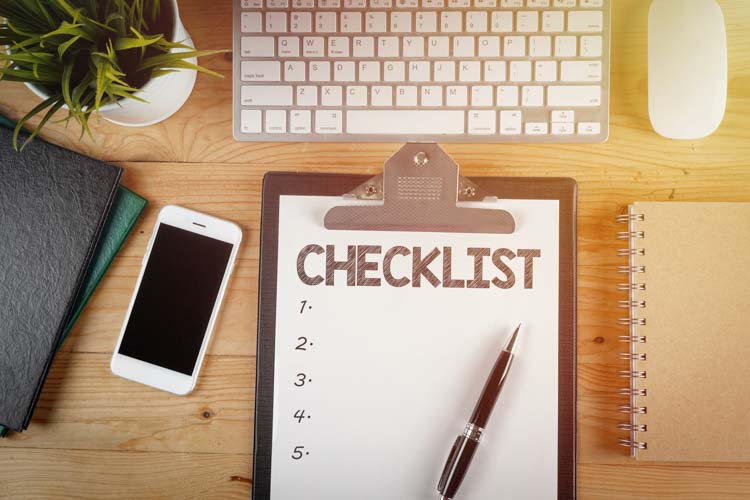If you have never made a Will or it has been a while since your last update, it can be difficult to know where to begin. To help you get started, we have set out what you need to know before writing a Will.
What is a Will?
A Will is a legal binding document which allows you to set out what you would like to happen to your money, property and other assets on your death.
Leaving a Will is like helpfully leaving an instruction manual for your family. It sets out who will inherit, what they will inherit and when. It also confirms who will be responsible for administering your estate and what powers those individuals will have to carry out your wishes.
Why is it important to make a Will?
Above all writing a Will means that you get to choose who you want to benefit from your estate. Writing a Will can also have other benefits depending on your circumstances.
If you are married with children…
If you die without a Will leaving a spouse and children, some of your estate may pass directly to your children rather than your spouse. This could actually increase the amount of inheritance tax you pay and mean that your spouse is left short after your death.
If you are in a long-term unmarried relationship…
Currently unmarried couples do not benefit from the same protections and rights on death as married couples. If you die without a Will, your partner will have no right to benefit from your estate. The position remains the same regardless of the length of your relationship or whether you have children together.
If you are a parent of young children…
If your children are under 18, you can use your Will to appoint legal guardians to act in case something should happen to you. Without a Will, it will be left to the courts to decide who will take responsibility for your children after your death.
If you are a homeowner…
Normally a person’s home is the biggest asset and will make up the bulk of their estate on death. Writing a Will allows you to set out how you want your estate divided and even put in default provisions, in case one of your chosen beneficiaries dies before you. Having a Will makes your wishes clear and can help avoid disputes.
What will happen if you don’t make a Will?
If you die without a Will, your assets will be divided up according to the rules of intestacy. Under these rules, the distribution of your assets depends on who survives you and the proximity of their relationship to you. With so much left up to chance, your family may not benefit in the way you intend.
Writing a Will can also save your family money in the long run. In our experience, the cost of dying without a Will is generally much higher as your loved ones will need a greater level of support to wind up the estate. Plus, research suggests that dying intestate or with an out of date Will, typically costs your family around £9,700 in untraceable or lost assets. Preparing a Will avoids this as you can leave a comprehensive list of your assets as part of your instructions.
Our Quick Will Checklist: What decisions do you need to make?
1 – Listing your Assets and Debts
When writing your Will, it helps to think about the assets you own and any ongoing liabilities. This will include any property, savings, investments, business interests, personal possessions, pensions and life assurance.
You don’t have to track down your paperwork or know the balance of your accounts down to the last penny, just have a good overview of your estate. This will help your solicitor give you advice on your inheritance tax liability and help your executors know where to look after your death.
2 – Choosing your Executors
Executors are the people you choose to wind up your estate after your death and distribute your assets in accordance with your Will. An Executor can be anyone over the age of 18; even someone who is going to benefit under your Will. You will want to make sure you choose individuals with the right skills and experience for the role.
3 – Setting out your funeral wishes
You can choose to include burial or cremation wishes in your Will. These wishes will not be binding on your family, but they can help avoid any disagreements. Similarly, if you have thoughts on the songs you want played, the readings or the tone of the wake you can also set these out in a side letter.
4 – Appointing legal guardians
If your children are under the age of 18, your Will is the best place to appoint legal guardians to care for them on your death. Your criteria for selecting a guardian will be unique to you and your children. You should start by writing down everything you are looking for in a legal guardian and work from there.
Planning ahead provides you with the opportunity to discuss your wishes for your children’s future with the guardians and make a plan.
5 – Including gifts to individuals or charities
When writing your Will, you can choose to make specific gifts (known as legacies) of a personal possessions, cash or property. These might be to individuals, such as friends, family or godchildren. Alternatively, you can make charitable gifts.
Legacies can be a nice way to honour a personal relationship or a cause close to your heart.
From an inheritance tax perspective, gifts to charity are tax free. However, as an added bonus, if you gift more than 10% of your net estate to charity you reduce the inheritance tax rate on the rest of your estate from 40% to 36%.
6 – Naming your residuary beneficiaries
You will also need to think about how you want the rest of your estate to be divided. This will be what is left after the payment of any outstanding debts, funeral and administration expenses, any tax due and the distribution of any specific gifts in your Will.
You can choose to make outright gifts, so that your loved ones get their inheritance immediately, or incorporate a trust.
7 – Using a Trust
Incorporating a trust into your Will can help protect the assets in your estate from:
- third party claims (e.g. on divorce or bankruptcy of a beneficiary);
- the actions of irresponsible beneficiaries
- your spouse remarrying after your death; or
- ring-fencing part of your estate form being swallowed up in care fees.
A trust can also be used to safeguard assets for children until such a time when they are mature enough to deal with their inheritance (e.g. when they turn 21 or 25).
8 – Getting Professional Advice
Using a solicitor to draft your Will gives you the confidence and peace of mind that your wishes are legally binding. A good solicitor will also work with you to incorporate your Will into a larger estate plan, this can include taking steps to minimise your inheritance tax liability and safeguarding your future from loss of mental capacity.
How much does a Will cost?
At Timbrell Law, we offer fixed fees for all of our Will services, with discounts for couples preparing Wills together.
Our service includes:
- Working with you to understand your estate and how you wish to distribute it. If you are based locally this could be a home visit or connecting in a whatever way is most convenient for you;
- Drafting your Will
- Sending you a draft pack for approval
- 1:1 support from a regulated and experienced solicitor
If you would like to discuss preparing a new Will, please click here for our contact details or visit our Will page.
If you would like to be kept up to date with legal news and receive helpful insights about Wills and more, follow us on social media.





